Something I've been meaning to do for a while now is make a set of 'mud' swatches to help me identify which weathering powders to uses for different jobs.
I bought a selection of Vallejo's powder pigments when they were offered on sale and added a couple of additional darker powders from the Humbrol range. But since buying them I have only scratched the surface of the variety of uses that they can be put to.
So while enjoying my relaxed Christmas break I though it was a good opportunity to experiment with the powders and examine their properties and possible uses.
Swatches
I wanted a record of the results of my experiments and so thought I would make some swatches out of some spare MDF bases. These could then be sealed (with Johnson's Clear or varnish) mounted on a card and put in a book so I can refer back to the effects created.
There are several ways, off the top of my head, I could think of using these pigments so divided up the swatch into different sections showing these varying techniques. These effects included:
• Pigment applied with PVA glue for thick gloopy mud
• Pigment applied with PVA with fine sand added for gritty mud
• Pigment applied as a 'dust' with no glue
• Pigment applied onto a wet surface (water or thinners)
• Pigment mixed with water/thinners and applied as a wash
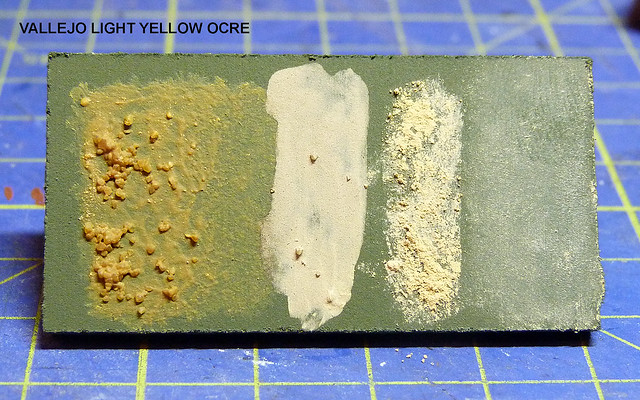 |
| Order on swatch: PVA/sand | PVA | Wash | On water | Dust |
Results - A few surprises
I was taken by surprise at just how much the various pigments changed colour when mixing with different mediums. PVA glue had a profound effect on the hue, mixing the pigment with water or thinners a similar - if not quite as drastic - effect.
I chose to paint my swatch a light olive green as I imagine this is the sort of colour that you would see these pigments used upon.
Vallejo's 'Green Earth
Vallejo's 'Light Yellow Ocre
Vallejo's 'Natuarl Siena'
Vallejo's 'Burnt Siena'
Vallejo's 'Natural Umber'
Vallejo's 'Burnt Umber'
Humbrol's 'Dark Earth'
Humbrol's 'Smoke'
So, there you go. Interesting to see them side by side. I concluded that to achieve a realistic mud effect on a vehicle I would have to 'mix and match' various pigments if I wanted a 'gloopy' effect next to a 'dusty' effect because of the hue change due to the medium I mix the pigments with.
Also, you can see which pigments might work nicely together to get a 'dry' mud and a 'wet' version of the same mud. It's not always the 'wet' version of the same pigment that's the best muddy companion!
Hope you find this helpful.
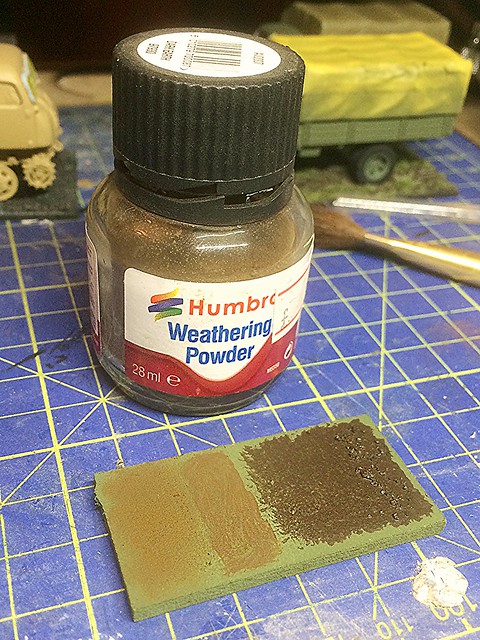

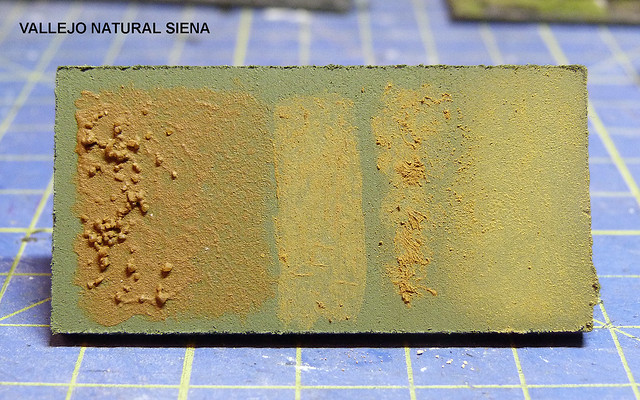

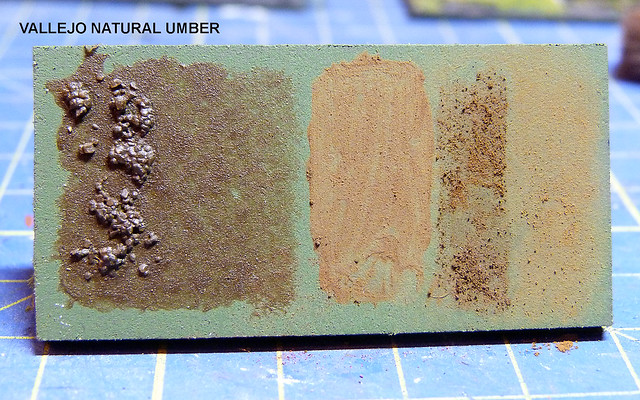

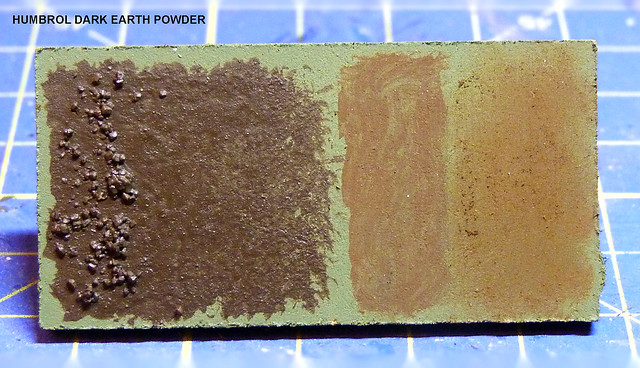

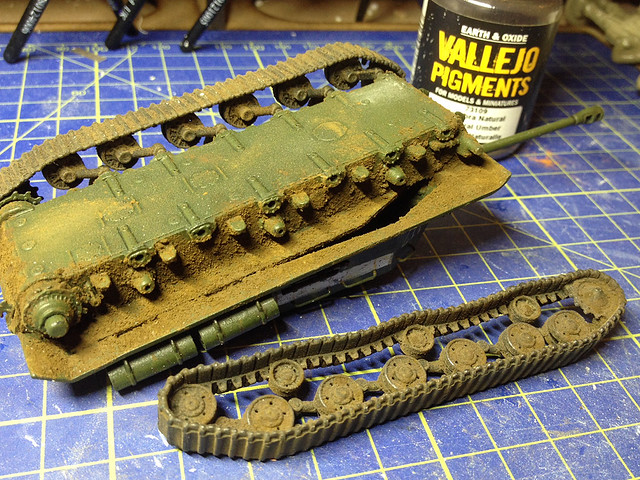
Cool
ReplyDeleteI will come back to this page again
Thanks!